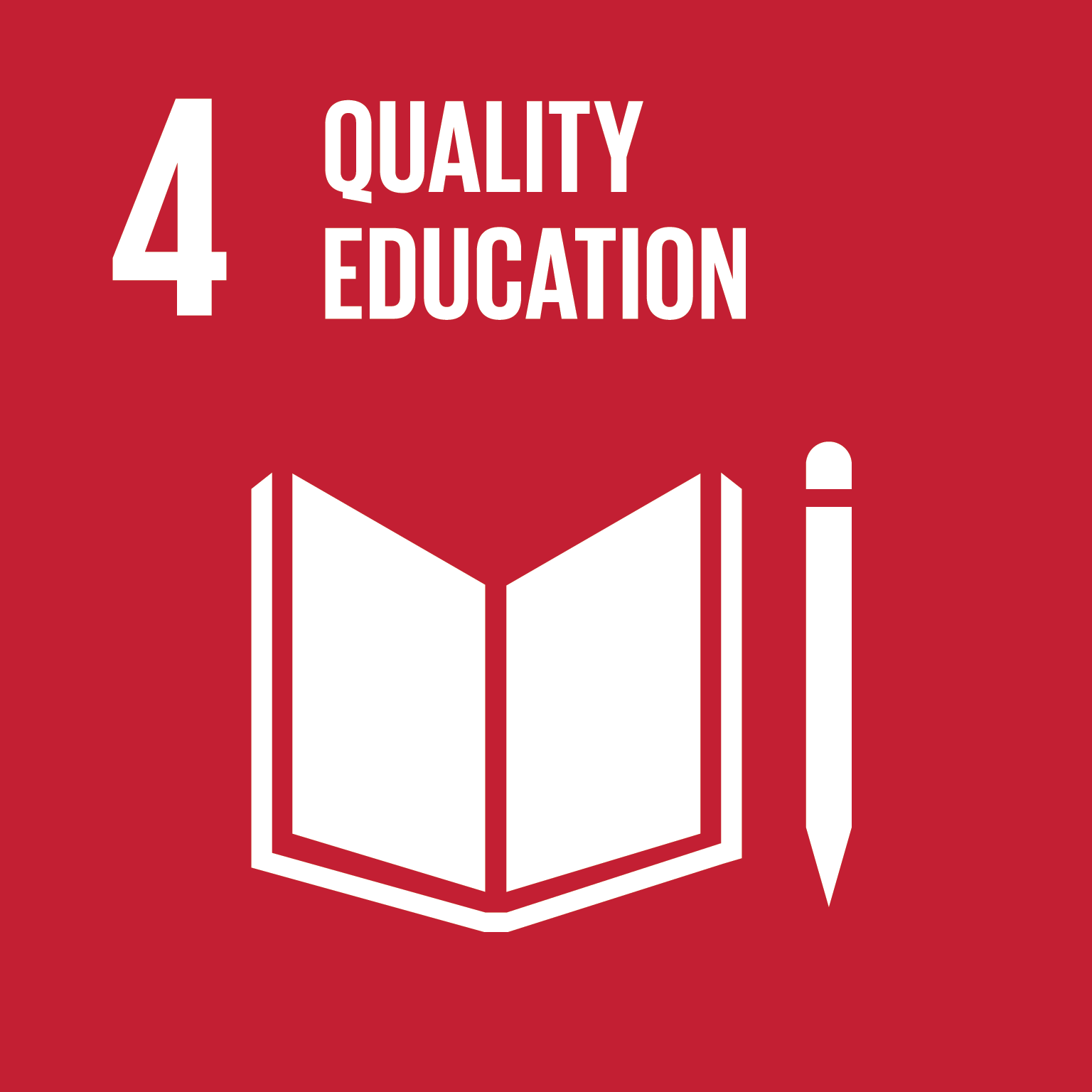Sustainable Development Goal 4
Sustainable Development Goal 4
Sustainable Development Goal 4: Ensure inclusive and equitable quality education and promote lifelong learning opportunities for all
Education is a fundamental human right and a powerful driver of social and economic development. It enables individuals to acquire skills and knowledge, to participate in society and to contribute to sustainable growth. However, millions of children and youth around the world still lack access to quality education, especially those who are marginalized by poverty, gender, disability, ethnicity, conflict or displacement.
The Sustainable Development Goal 4 (SDG 4) aims to address these challenges and ensure that everyone has the opportunity to learn throughout their lives. It has seven targets and three means of implementation that cover all levels and aspects of education, from early childhood to higher education, from formal to non-formal and informal learning, from literacy to skills development, from teachers to infrastructure, from financing to monitoring.
Some of the key targets of SDG 4 are:
- By 2030, ensure that all girls and boys complete free, equitable and quality primary and secondary education leading to relevant and effective learning outcomes.
- By 2030, ensure that all girls and boys have access to quality early childhood development, care and pre-primary education so that they are ready for primary education.
- By 2030, ensure equal access for all women and men to affordable and quality technical, vocational and tertiary education, including university.
- By 2030, substantially increase the number of youth and adults who have relevant skills, including technical and vocational skills, for employment, decent work and entrepreneurship.
- By 2030, eliminate gender disparities in education and ensure equal access to all levels of education and vocational training for the vulnerable, including persons with disabilities, indigenous peoples and children in vulnerable situations.
- By 2030, ensure that all youth and a substantial proportion of adults, both men and women, achieve literacy and numeracy.
- By 2030, ensure that all learners acquire the knowledge and skills needed to promote sustainable development, including, among others, through education for sustainable development and sustainable lifestyles, human rights, gender equality, promotion of a culture of peace and non-violence, global citizenship and appreciation of cultural diversity and of culture’s contribution to sustainable development.
To achieve these targets, SDG 4 also calls for:
- Building and upgrading education facilities that are child, disability and gender sensitive and provide safe, non-violent, inclusive and effective learning environments for all.
- Increasing the supply of qualified teachers, especially in developing countries.
- Expanding international cooperation and increasing the share of education in public expenditure.
SDG 4 is closely linked to other SDGs that also address the social, economic and environmental dimensions of sustainable development. For example, quality education can help reduce poverty (SDG 1), improve health (SDG 3), promote gender equality (SDG 5), foster innovation (SDG 9), combat climate change (SDG 13) and build peaceful societies (SDG 16).
Achieving SDG 4 requires the collective efforts of governments, civil society, private sector, donors, multilateral agencies and individuals. Everyone has a role to play in ensuring that no one is left behind in education.
Want to See More Information about Sustainable Development Goal(SDG)

.png)
.png)
.png)
Comments
Post a Comment